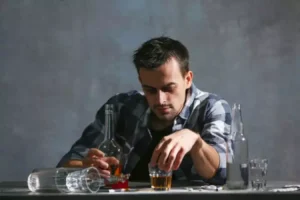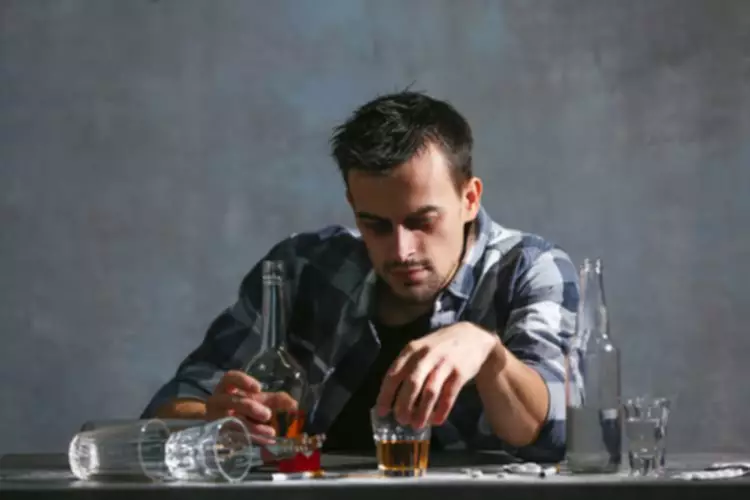
We cannot guarantee payment or verification eligibility as conveyed by your health insurance provider will be accurate and complete. Payment of benefits are subject to all terms, conditions, limitations, and exclusions of the member’s contract at time of service. Your health insurance company will only pay for services that it determines to be “reasonable and necessary.” The treatment center will make every effort to have all services preauthorized by your health insurance company. Finding the right help through therapy, peer support, or family guidance is essential to lasting recovery. Contact an addiction specialist or a local rehab center for personalized rehab information. Addiction, on the other hand, is characterized by compulsive use and an inability to stop using marijuana despite negative consequences on daily life, relationships, and health.
Start the road to recovery
Cannabis use in adolescence has been reported to increase the risk for schizophrenia. CBT focuses on helping individuals understand the connections between their thoughts, emotions, and behaviors. This therapy teaches coping skills to manage triggers and high-risk situations, effectively reducing cravings and preventing relapse. Psychological effects are changes in mood and emotional state that occur when an individual stops using marijuana. The severity of these effects is significant, often leading to distress and difficulty in daily functioning. Common examples include mood swings, anxiety, depression, irritability, agitation, restlessness and insomnia.
Treatment
About 100 of McIff’s patients currently use medical cannabis, mostly for chronic pain. However, he opposes recreational legalization — or even casual medical legalization where the difference gets blurred. marijuana addiction Among those daily or nearly-daily users are many who look to cannabis for help with assorted ailments. In 2018, the International Cannabis Policy Study found that 27 percent of North Americans between 16 and 65 had used cannabis to help with pain, sleep, migraines, anxiety, depression and PTSD. Conditions that qualify under Utah’s medical cannabis law include HIV, Alzheimer’s, ALS, cancer, Crohn’s disease, epilepsy, multiple sclerosis and PTSD.
- This therapy is beneficial in the early stages of recovery, helping individuals commit to change.
- This assessment is important in determining the appropriate treatment plan and addressing any underlying issues that are contributing to marijuana addiction.
- They add that people who use marijuana before age 18 are 4 to 7 times more likely to develop this use disorder than adults.
- Seeking treatment for marijuana addiction is a proactive step that can improve well-being and life quality, offering the tools needed to build a balanced, substance-free future.
- If you or a loved one is seeking help for marijuana addiction, finding a treatment center nearby can be a valuable step toward recovery.
Building up a tolerance
The THC level usually peaks in about 30 minutes, and its effects may wear off in one to three hours. If you drink THC-infused drinks or eat THC edibles, it may take much longer for you to fully sober up. Drug abuse and addiction can be scary and uncertain, but it’s treatable, and there’s help out there. There are a variety of treatments available, and if one doesn’t work, another one may be better for you.

Treatment for Marijuana Abuse
- You may have ongoing coughing with colored mucus, and your lungs may more easily pick up infections.
- Participants work through a series of steps to foster personal growth and sobriety.
- In many parts of the United States, marijuana is legal for both recreational and medical use.
- The common signs of marijuana addiction include physical signs, behavioral signs, and psychological signs.
This article was developed in partnership with the Opioid Response Network (ORN). ORN provides education and training, known as technical assistance, via local, experienced consultants in prevention, treatment, recovery and harm reduction. Anyone can submit a request for no-cost technical assistance at OpioidResponseNetwork.org. The first case is a carpenter with chronic pain from a work injury who disclosed that he had for years struggled with opiate painkiller addiction but was now sober, implying that he white-knuckled his recovery — a rare and difficult feat.

Marijuana addiction can be present in about 9% of weed users, 17% of those who begin use in adolescence, and 25 to 50% of those who are daily users. This condition involves a physical and psychological dependence on cannabis, with users experiencing cravings, withdrawal symptoms, and a compulsion to continue using even when it interferes with daily life. Professional help provides important tools like therapy, medication, and support systems, which improve recovery outcomes. Seeking help is particularly necessary for individuals with severe dependence or co-occurring mental health issues, where self-recovery does not address underlying factors effectively. Treatment for marijuana addiction includes behavioral therapies like cognitive-behavioral therapy (CBT) and motivational enhancement therapy (MET).

Find more top doctors on
The focus area is the symptoms of anxiety, depression, or other psychiatric conditions that are worsened by cannabis use. This assessment is important in determining the appropriate treatment plan and addressing any underlying issues that are contributing to marijuana addiction. Many people consider marijuana use to be relatively harmless, because they believe that it isn’t addictive, and because the drug can be beneficial when used for a medically prescribed purpose. Studies have shown, however, that chronic use of marijuana can be dangerous, leading to dependence, tolerance, and addiction.
- The details are kept up to date to help people with addiction treatment needs get the most full and precise facts about the rehabilitation facility.
- Diagnosis of CUD takes into account both physical and psychological aspects of addiction.
- According to the National Conference of State Legislatures, as of January, 39 states allow medical marijuana, with 24 of those having fully legalized weed.
- The FDA requires rigorous, large-scale, placebo-controlled clinical trials before approving drugs for medical conditions.
What makes Yale Medicine’s approach to cannabis use disorder research unique?

Remember to be clear about your goals, be positive and offer compassion. These skills take practice, so if the talk doesn’t go the way you hoped it does weed have addictive properties might, remember that you will have other chances to try them. Being direct with your child that you regret something you said or don’t love how you handled something and want another chance is a wonderful way to model for them that they don’t have to be perfect. You are sharing with them that mistakes happen, and that it’s great to try again if something didn’t work out perfectly the first time. Have more than one conversation, that will give you other opportunities to get it right and improve upon what didn’t go so well the last time. With little else to do, she joined remote group therapy sessions twice a day.
